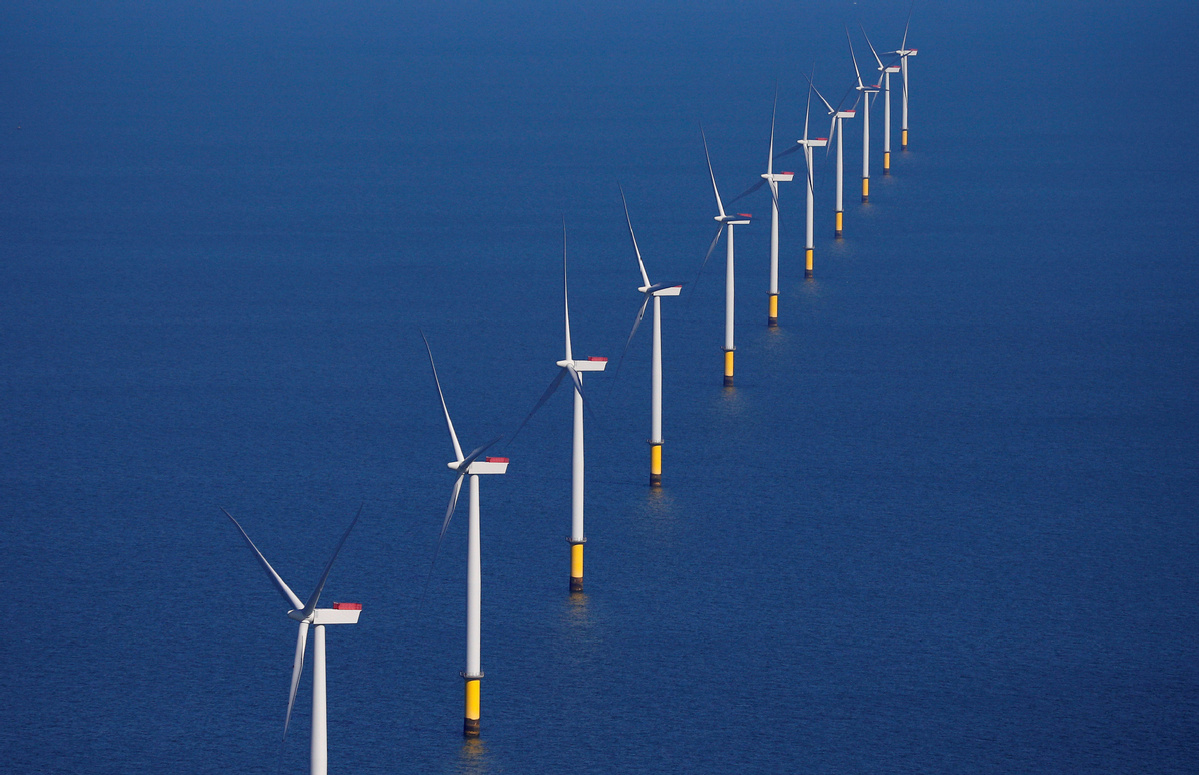UK is aiming to strengthen ties with China on climate change


The United Kingdom has said that deepened ties with China will be essential to addressing global warming and large-scale environmental degradation, in a new report that sets out the government's ambitions for a post-Brexit Britain.
Cooperation with China will be "vital in tackling transnational challenges, particularly climate change and biodiversity loss," the government said in a report published on Wednesday titled Global Britain in a Competitive Age: The Integrated Review of Security, Defense, Development and Foreign Policy.
In the report, the UK further outlined previously announced ambitions to achieve net-zero carbon emissions by 2050. The government's commitments include expanding off shore wind, hydrogen, and nuclear energy, investing in carbon-capture technology, improving sustainability in buildings and transport infrastructure, and ending the sale of new petrol and diesel cars and vans by 2030.
Commenting on the report, British economist Nicholas Stern, who is chair of the Grantham Research Institute on Climate Change and the Environment at the London School of Economics, said that he was encouraged to see climate change, biodiversity and China feature prominently in the UK's foreign policy agenda.
Stern said the UK must continue to find ways to work with China, in order to "promote an effective multilateral approach to stopping climate change".
"It is also enormously important to invest in building and maintaining long-term relationships between the people of the UK and the people of China," Stern said. "For example, during the past year, China has set more ambitious targets for limiting its emissions of carbon dioxide, and was supported through constructive engagements between universities in China and the UK."
Both the UK and China have ambitious plans to reduce emissions over the coming decades. China has committed to lower its carbon dioxide emissions per unit of gross domestic product, or carbon intensity, by at least 65 percent by 2030, and to achieve carbon neutrality by 2060.
Meanwhile, the UK has announced a "green industrial revolution" that will push the nation toward net-zero emissions by 2050.
In the report released Wednesday, the UK forecast that the distribution of global political and economic power will further pivot towards the Indo-Pacific region over the next decade, and highlighted the importance of closer ties with China.
"We will invest in enhanced China-facing capabilities, through which we will develop a better understanding of China and its people," the report said.
The UK said that China's "increasing power and international assertiveness" is likely to be the most significant geopolitical factor of the 2020s.
"The scale and reach of China's economy, size of its population, technological advancement and increasing ambition to project its influence on the global stage, for example, through the Belt and Road Initiative, will have profound implications worldwide," the report stated.
"Open, trading economies like the UK will need to engage with China and remain open to Chinese trade and investment," the report said.

































